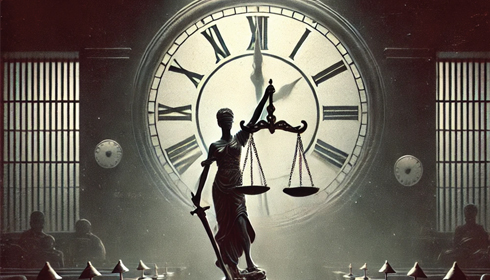
Kolkata Protests: Will Junior Doctors' meeting with the Chief Minister, resolve crisis?
The ongoing impasse between the doctors and the West Bengal government is about to reach a crucial stage with the planned meeting between the junior physicians' representatives and Chief Minister Mamata Banerjee on Monday. Following weeks of demonstrations and hunger strikes at NRS Medical College, this gathering could be a turning point. However, given the conflicts surrounding the conversation's framework, multiple elements suggest that finding a complex solution may not be straightforward.
The government's last correspondence, which established a 45-minute time limit and stipulated that the hunger strike must end before the conference, has not received a favorable response from the junior physicians. The junior physicians' inability to convene under these terms reveals a deep-seated dissatisfaction and a conviction that their demands receive insufficient attention.
One fundamental request that has caused conflict is the removal of the health secretary. Although the administration has agreed to four out of the five initial demands, a cause of contention remains the lack of a replacement for the health secretary. The junior doctors see this as absolutely necessary for guaranteeing responsibility and systematic change. However, the government may view this as an unrealistic demand, given that significant administrative changes could jeopardize the healthcare system.
Rather than replacing important individuals, the government can suggest the creation of a special monitoring committee to examine the operation of the health department. This can be a compromise since it lets the state keep administrative continuity while giving the doctors a means to resolve their complaints.
One of the primary concerns of junior doctors is the safety and infrastructure of the workplace, particularly in light of recent incidents of violence against medical professionals. The experts underline that returning to work is still challenging unless this problem is sufficiently resolved. Despite the Chief Minister's expressed support for tougher policies against hospital violence, we still expect specific steps or guarantees.
The authorities can suggest quick-response teams to manage violent events and additional security staff deployment among immediate security improvements at hospitals. Moreover, the government may promise to enhance the general state of medical facilities, which would be considered a kind deed by the doctors.
Both sides' tone, especially the Chief Minister's emphasis on the importance of her time and the doctors' perception of it as disrespect, reveals a breakdown in communication. This conflict draws attention to a more fundamental necessity for both sides to feel valued and heard during the negotiating process.
A neutral third-party facilitator or mediator could be included in the conversations to guarantee that both sides believe their issues are given importance. This would enable us to depersonalise the conflict and concentrate on fixing the main problems.
Given the possibility of a statewide hospital strike, both sides hold significant stakes in the outcome. If Monday's resolution fails, the doctors have stated that they will intensify their demonstrations, potentially causing significant disruptions to West Bengal's medical facilities.
The Chief Minister might present a tiered approach whereby some needs—such as those related to elections in medical colleges—are given a defined schedule for implementation while others are handled right now. This could provide a roadmap for further changes and help defuse hostilities.
Monday's conference most likely will produce a partial resolution given the present dynamics. Although the state government might consent to particular administrative and safety changes, it will most certainly object to the call to dismiss the health secretary. Conversely, if the state government pledges tangible steps on security and safety, the physicians may continue their hunger strike while shifting their stance on certain non-negotiable matters.
Both sides know that a total collapse in negotiations might have major effects for government and public health. Consequently, should productive discourse arise, the Chief Minister might call the meeting longer than the initially suggested 45 minutes. Particularly if their demands include quick moves on safety and working conditions, the younger physicians could also be ready to discuss a gradual execution of their objectives.
The result of this conference will ultimately depend on whether both parties can change from a combative to a cooperative attitude in order to reach a middle ground and address pressing issues without endangering government stability. If handled diplomatically, this conference might signal the start of a slowdown of the demonstrations, allowing the state's healthcare system to resume routine and creating a model for handling next disputes.